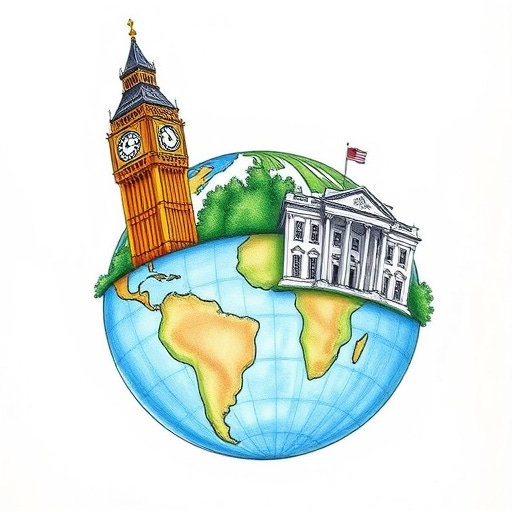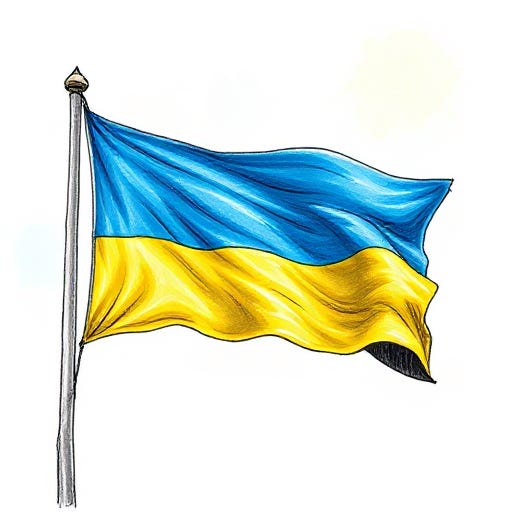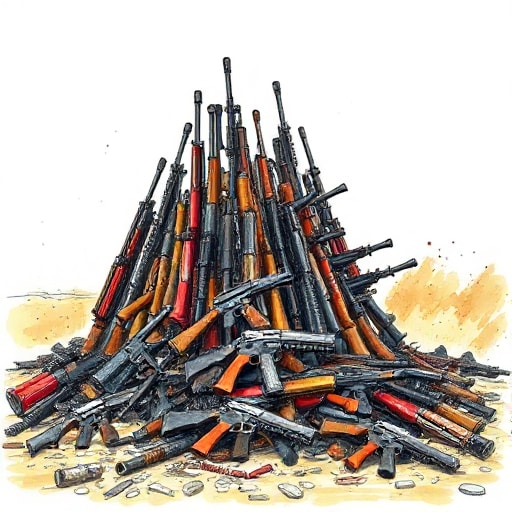War
What is it good for?
Tony Blair was our last ‘interventionist’ Prime Minister. He saw his role as one that required a platform on the global stage. He interfered - for good and ill - all around the world: in Kosovo (where Tonibler is now a male first name in his honour), in Sierra Leone, and most infamously in Iraq.
Since Blair, we have become an inward-looking nation. The 2008 recession, Brexit, political infighting and crumbling public services have left politicians with very little money, time or energy to look outside of domestic policies. In 2014, when Putin invaded and annexed Crimea, the UK did almost nothing to stop him.
That seemed to change - marginally - under Boris Johnson. Johnson seized his Churchillian moment when Russia invaded Ukraine and led the charge on arming the Ukrainians and sanctioning the Russians. It was the first time since Blair that the UK properly stepped onto the global stage.
Keir Starmer, like Blair, sees himself less as a British Prime Minister and more as a world leader. He is more comfortable in Davos than in Westminster, per his own words. And Foreign Secretary David Lammy is making his mark - most recently asking where the “liberal outrage” was over Sudan. So what could this mean for Britain’s role in the world over the next half-decade?
The US is far more bullish on its global intervention. For a long time, the US has been the world’s cop. They stepped in to defend South Korea against the North (and remain there to this day), supported rebels in Syria, led the charge against Bosnia and Kosovo - the list goes on and on.
But much like the UK, the role of the US seems to be shifting. For one, domestic issues have dominated the President’s agenda. But another reason - America’s military is no longer unstoppable. And the culmination of it all was Biden’s disastrous withdrawal from Afghanistan in 2021. After 20 years of fending off the Taliban, the Taliban took control of Afghanistan within days of America’s botched departure.
So what about Trump? His role internationally is perhaps best described as agitator-in-chief. He threatens nations, shows off his big red button, and yanks at world leader’s hands in his signature handshake. But he did very little of consequence in his first term: far more concerned with domestic policies than international ones. His whole mantra, after all, is America First.
But his first term was also defined by a period of relative peace. Some say that’s because of his temperament - world leaders truly believe he is crazy, and that’s enough to put them off doing anything risky. Others think he got lucky - COVID slowed or prevented many world conflicts.
So, what will his role be in some of the most pressing conflicts around the world in his second term?
Ukraine
Trump said that he would end the war in Ukraine on day one. He hasn’t.
It’s hard to see a way out of the war that doesn’t result in Ukraine conceding at least some land. Zelensky himself has indicated that, recently changing his tune to say - for the first time - Ukraine would be willing to concede the areas of Ukraine that Russia has annexed. He almost certainly feels backed into a corner: with Trump and his allies repeatedly insisting that they will prioritise peace over territory. In other words, they are prepared to let Ukraine lose land if it means the fighting stops.
The war is only getting bloodier for both sides: Russia lost half a million troops last year, and Ukraine began firing into Russian territory.
The contingency for a ceasefire, or even a peace treaty, will likely be finding a balance between what Ukraine is prepared to give away, and how much Western protection Russia is prepared to allow on its borders. Ukraine wants full NATO membership: Russia will never allow that, but they have to decide what they are prepared to permit.
But there is one thing that could change the direction of the war, which is often neglected: Putin could die. Life expectancy in Russia is almost a decade lower than the rest of Europe at 72.5 years old. Putin turned 72 in October. Putin has never named a successor. When Stalin died, Khrushchev came out on top as his successor after an internal power struggle, and radically changed the direction of the Soviet Union: thawing hostilities with the rest of the world, closing the gulags and focusing on improving living standards.
There is no reason that a Putin successor couldn’t reverse some of the blood-thirsty policies of the Putin administration and back out of Ukraine: after all, more than half of Russians want better relations with the West, and 63% want a peace treaty with Ukraine.
Gaza
Labour have taken a bizarre position on the war in Gaza. Pre-election, they were battered in areas with a high proportion of Muslim voters for not taking a strong enough line: losing seats to pro-Gaza independents and having their majorities hit elsewhere.
But post-election, they have been relatively tough on Israel: suspending some arms sales to Israel. They’ve managed to wind up both sides, which is usually a good sign that you’re close to doing the right thing.
But doing the right thing is about to get a whole lot harder. We are now a week into a delicate ceasefire agreement, and in nine days negotiations will begin for a permanent ceasefire. Israel has not achieved their objective, which is the complete destruction of Hamas. Hamas has not achieved their objective, which is the destruction of the Israeli state. It is hard to find a compromise between those two objectives. Hamas certainly won’t achieve theirs, and Israel looks increasingly unlikely to achieve theirs. It’ll come down to what role Hamas play in a reformed Gaza state.
But the ceasefire looks unlikely to hold. Not least because of its profound implications for the internal politics of Israel. The wobbly coalition keeping Netanyahu afloat is in danger of collapsing as his far-right allies oppose the ceasefire.
Platitudes about peace won’t be enough any more: the US and the UK governments (and leaders across the Western world) will be forced to pick their poison if they truly want to stabilise the Middle East. Do they back Israel to the hilt and turn a blind eye to the human suffering that entails? Or do they clip Israel’s wings in the name of humanitarianism and give more extreme, anti-Western groups greater power?
Morality won’t be the only factor for Western leaders to consider - this war has somehow become a serious consideration for domestic voters at the ballot boxes. Leaders will be considering their own position, too.
What is it good for?
War is always bad. Hundreds of thousands of lives are needlessly lost, civilians suffer, and homes and history are destroyed.
But ending wars in the wrong way can be just as bad. Conflicts in Israel have been essentially ongoing since the country was founded: no peace treaty, negotiation or ceasefire has ever held in the long-term.
America is not the unrivalled strength it used to be on the global stage, but they still have a duty to defend what should be the values of the world: peace and cooperation. That sometimes means difficult decisions, choosing sides, and pushing for unpopular but long-term compromise.





how about a piece on public enquiry's on there cost and findings and who is at fault